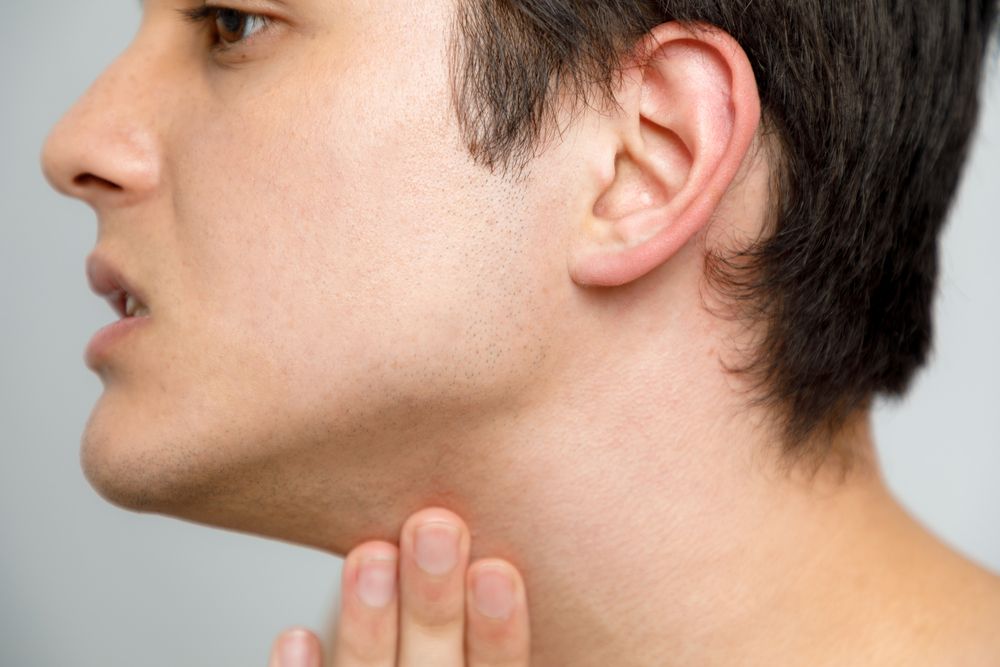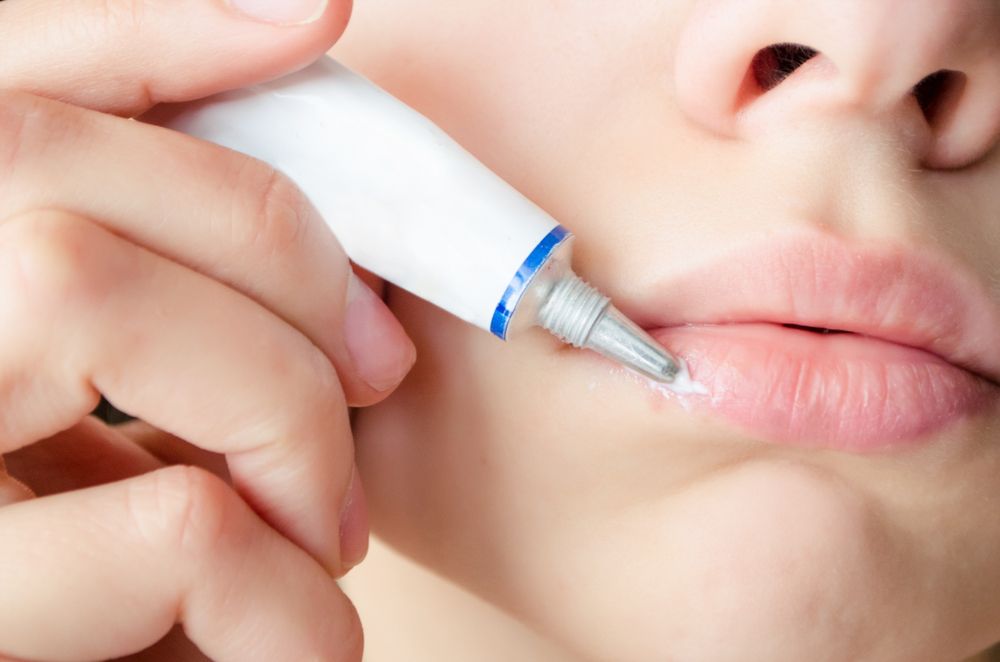An initial herpes outbreak lasts a few weeks on average. Recurrent outbreaks tend to last about a week.
When people discuss herpes, they usually are referring to oral or genital herpes, caused by HSV-1 and HSV-2. (Learn More)
Two to ten days after first contracting the virus, the relevant location may show symptoms. Some people are asymptomatic or show very mild symptoms that they do not notice. These symptoms include lesions, blisters, and sores.
The symptoms last for a few weeks during the first outbreak but for a shorter period of time during recurring outbreaks. (Learn More)
It is known that some triggers, such as fatigue, genital irritation, menstruation, stress, and injury, can cause herpes to activate and result in more frequent outbreaks. (Learn More)
The length and severity of outbreaks can be reduced with antivirals, taken either as symptoms occur or as part of suppression therapy. Not everyone will need antivirals, depending on the severity and frequency of their symptoms.
Sleeping well, eating healthy, and protecting yourself from extreme weather, including sunshine, are good ideas if you deal with herpes outbreaks. These practices can reduce your symptoms. (Learn More)
Oral and Genital Herpes
While there are many types of herpesviruses, herpes generally refers to either oral or genital herpes, caused by either herpes simplex virus type 1 (HSV-1) or type 2 (HSV-2).
These viruses are very easy to spread. Many people infected with them show no symptoms or such mild symptoms that their condition goes unnoticed.
While both viruses can cause either genital or oral herpes, HSV-1 is typically linked with oral herpes and HSV-2 with genital herpes. Once a person is infected with either virus, it typically takes two to ten days for symptoms to appear.
These symptoms essentially hit the body in waves, called outbreaks. The symptoms then slowly recede and then eventually recur again.
There are ways to reduce recurrences, although they cannot be totally prevented. Herpes is incurable, and it can be spread even if you are not currently showing symptoms.
First Outbreak and Recurring Outbreaks
The first outbreak of herpes you experience is generally the worst, occurring after the primary infection with the virus. After the above noted incubation period, you may begin to experience some serious symptoms.
The first outbreak of genital herpes tends to be more pronounced than with oral herpes. As noted by the American Sexual Health Association, the symptoms of oral herpes may be mistaken for other issues, such as a minor cut or crack in the skin, bug bites, pimples, or chapped lips.
While you may not experience all of the following, and some people will experience milder or more severe symptoms, signs of a first outbreak for either genital or oral herpes include the following:
- Lesions
- Blisters or clusters of blisters
- Sores
- Flu-like symptoms
This initial outbreak can last a few weeks. It is generally not dangerous, but it can be uncomfortable and embarrassing. If you properly treat your symptoms, it can reduce the length of your outbreak (discussed below).
After an initial outbreak of herpes, you will likely experience recurrent outbreaks. These are milder outbreaks with otherwise similar symptoms. These tend to be more frequent in the first year of infection, and they get less frequent over time.
A recurrent outbreak might be coming on if you experience burning, itching, or tingling near where the virus first entered the body. A few hours later, sores can appear. These recurrent outbreaks tend to last less than a week.
Sores and blisters might occasionally show up in isolation, but they may not be extreme enough to qualify as an outbreak.
What Impacts the Rate of Outbreaks?

Viruses are confusing to some, as they are not generally considered living or dead; instead, they are activated or inactive. When herpes is activated, it can cause outbreaks.
A few triggers are known to potentially activate an outbreak. These include the following:
- Fatigue
- Genital irritation
- Menstruation
- Stress
- Injury
While not all of these conditions can be avoided, it can help to control what triggers you can. For this reason, lifestyle changes are recommended for anyone struggling with herpes outbreaks. If these triggers can be minimized, outbreaks may be less likely.
While not fully understood, some people seem to struggle with outbreaks more than others. If you have especially severe symptoms or frequency of outbreaks, consult a doctor who can help you control your symptoms.
Reducing the Length of Outbreaks
Controlling your herpes symptoms can be difficult. It is generally a good idea to talk to a professional about it. Your doctor may prescribe you antivirals as needed or as part of suppression therapy.
Antivirals can lessen the length and severity of your outbreaks. Suppression therapy, as the name implies, helps to suppress your outbreaks. By taking antivirals at a controlled pace, you can reduce the frequency of outbreaks, although this method of taking antivirals may not be for everyone. It can, however, help people who have especially frequent outbreaks.
When experiencing symptoms, do not pick at the sores. Wash any sores gently and pat them dry. Apply cool compresses to your sores several times a day, which can help to reduce your pain and itching.
Talk to your doctor before applying things like ointment or bandages. These can actually cause you to heal more slowly.
The general idea is that you want to control your pain and itching in order to help you avoid picking at the sores, thus letting them heal.
In addition to controlling your triggers, some lifestyle changes associated with helping with herpes include:
- Sleeping well.
- Eating a healthy diet.
- Protecting yourself from the sun, wind, and extreme cold and heat.
References
Genital Herpes – CDC Fact Sheet (Detailed). (January 31, 2017). CDC.
Genital Herpes. (September 2016). The American College of Obstetricians and Gynecologists.
Genital herpes – Self-Care. (May 8, 2019). MedlinePlus.
Herpes – Oral. (August 26, 2017). MedlinePlus.
Oral Herpes. American Sexual Health Association.
Genital Herpes. Mayo Clinic.







